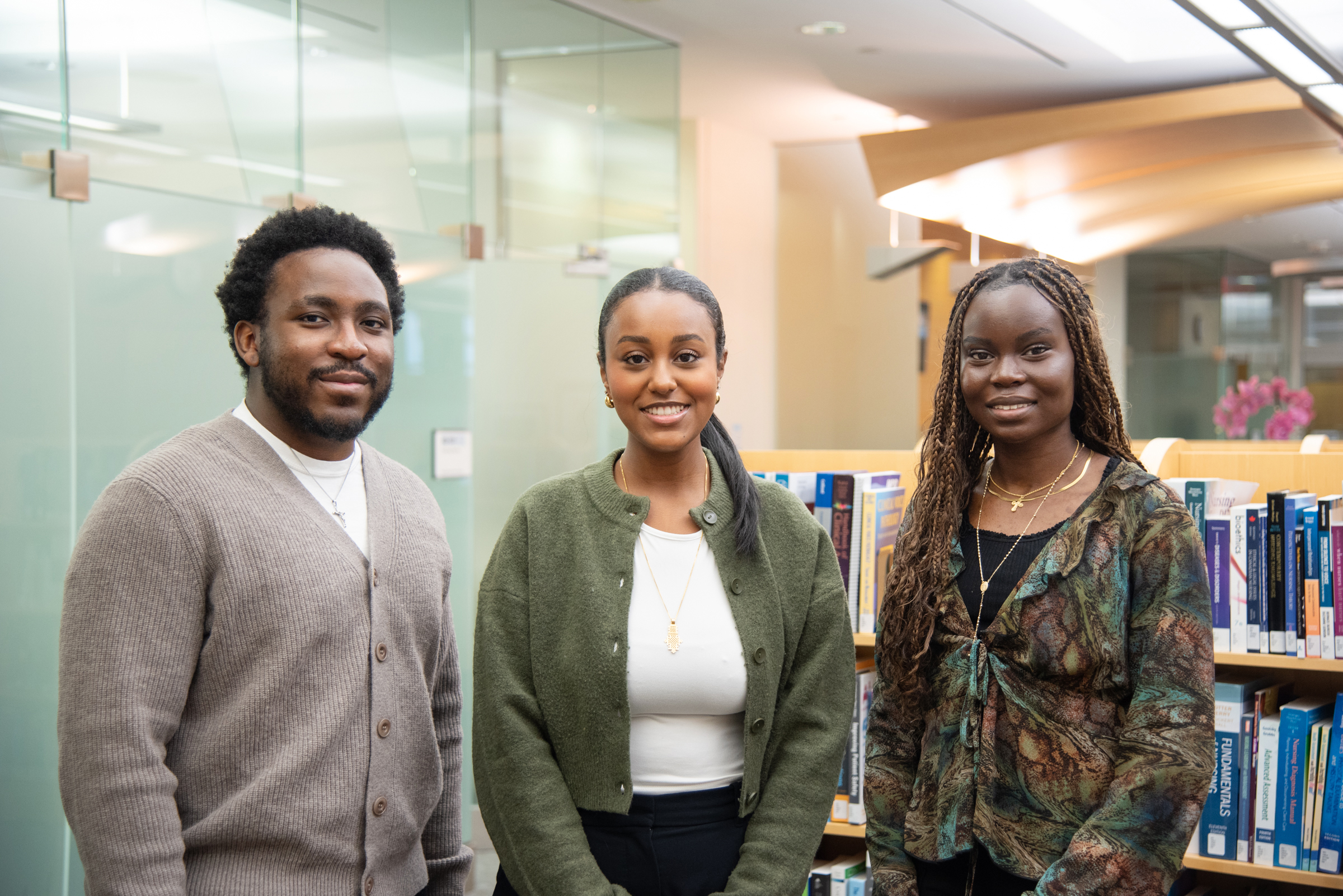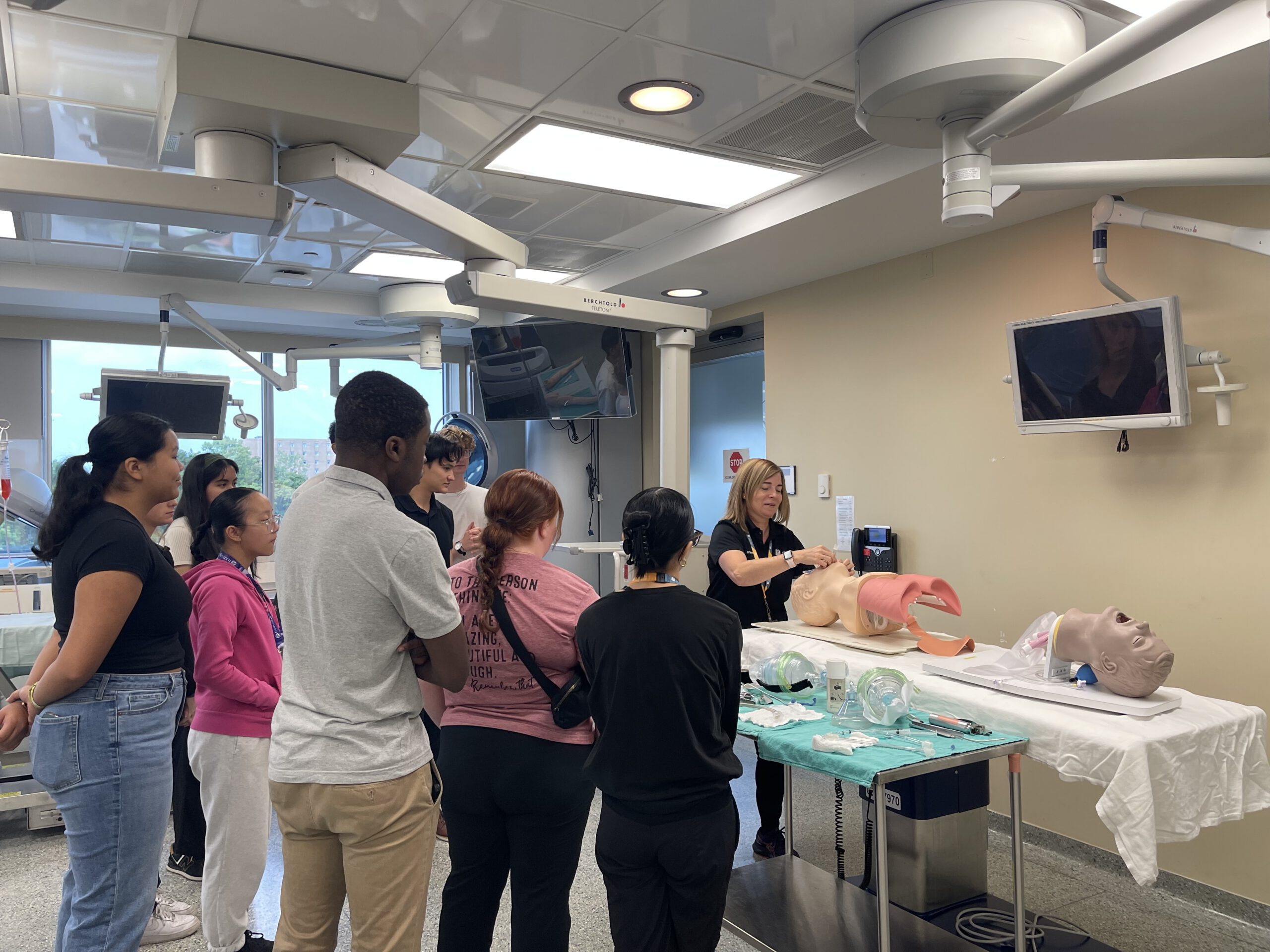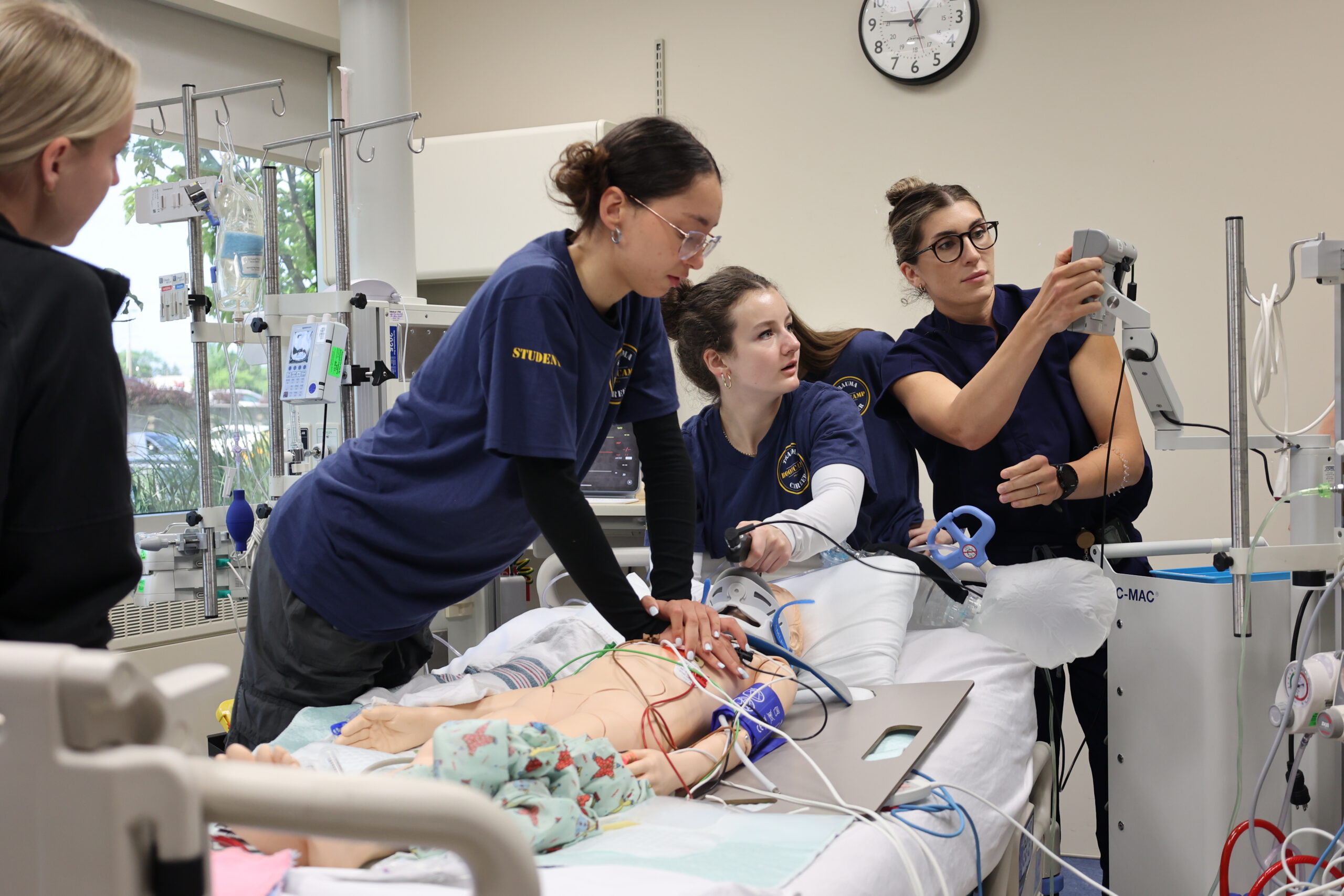At London Health Sciences Centre (LHSC), we’re not just preparing for the future of health care, we’re helping to shape it. Each year, we offer hands-on learning experiences that inspire and empower the next generation of health-care professionals. From mentorship and student placements to simulation-based learning and immersive career bootcamps, LHSC is helping learners find their place in the future of health.
Empowering Black leaders at LHSC through the Western B.L.U.E. program

Through a unique opportunity with Western University’s Black Leaders University Experience (B.L.U.E.) program, LHSC welcomed three students who made meaningful contributions across the organization. The program aims to create a supportive space for learners to build confidence, develop leadership skills, and explore their professional identity.
Now in its third year, the program places learners with organizations like LHSC, where they work independently alongside mentors who provide personalized guidance and opportunities to observe clinical practice in action. Each student is also tasked with leading a five-month project aligned with their passions and LHSC’s priorities, giving them space to make meaningful, independent contributions.
Gabriella Game, Nyechuor Deng, and Forbehn Fossungu brought their lived experiences, academic knowledge, and personal passions to their placements at LHSC and in doing so, left a lasting impact on our programs, teams and communities.
Gabriella worked with the South West Regional Cancer Program, focusing on integrating equity, diversity, and inclusion principles into the Ontario Lung Cancer Screening Program. Nyechuor collaborated with the Nursing Practice Excellence and Innovation team, researching pressure injuries on darker skin tones and educating health-care providers on recognizing and treating these injuries. Forbehn worked with LHSC’s Black Health team to organize programs addressing disparities in Black health, with a focus on Black History Month and the first-ever Black Health Fair.
“Not only did these three students make a lasting impact within the LHSC community by confronting challenges faced by Black patients, they are helping us transform health, together,” says Cathy Wood, Interim Director, Equity, Diversity, and Inclusion.
Gabriella is considering a future in public health, inspired by her hands-on experience and desire to help serve equity-denied communities. Nyechuor envisions her future self as a key member of the Skin Wound and Ostomy team, addressing disparities and inequities within the health-care system through education and action. Forbehn, meanwhile, feels more motivated than ever to pursue a career in medicine, strengthened by his experience working within the health-care field and witnessing the impact that his work has had on Black communities.
Innovative medical simulation program inspires the next generation of health-care professionals

As a leader in surgical innovation and simulation training, LHSC’s Canadian Surgical Technologies and Advanced Robotics (CSTAR) team is finding new ways to share its expertise with the next generation. In partnership with the Canadian Medical Hall of Fame’s Museum School program, CSTAR has launched a hands-on educational initiative designed to open students’ eyes to the wide world of health-care careers and empower them to envision their role in the future of health care.
Led by CSTAR’s Simulation Tech Consultant, Scott Sumpter, and Surgical Suite Associate, Karen Siroen, the curriculum introduces students in grade seven and up to medical simulation tools and career paths beyond the traditional roles of physician and nurse.
“This unique program educates students through engaging interactive activities that capture the imaginations of young learners,” said Nicole Girotti, Director of Academics and Research Operations at LHSC. “We take complex medical concepts and transform them into accessible, engaging, and enjoyable learning experiences.”
The program brings together history, innovation, and interactive experiences, giving students the chance to learn directly from CSTAR researchers, explore biomedical technology, and work with high-fidelity medical simulators typically reserved for clinical professionals.
The feedback has been overwhelmingly positive, with students expressing excitement, appreciation, and a newfound interest in health-care careers. This initiative is helping students see themselves in these roles and shows how early, engaging exposure can be a powerful motivator for young people exploring their future.
Trauma Career Bootcamp allows students to explore health-care careers
Building on LHSC’s commitment to immersive, hands-on education is our annual Trauma Career Bootcamp. This unique program offers high school students practical experience and a first-hand look at the world of trauma care. Through engaging simulations and clinical activities, students build confidence and gain key skills that will equip them for the future of medicine.
Participants learn how to respond to life-threatening injuries, gain hands-on experience with medical tools, and practice critical procedures, all while exploring the broad range of roles that make up a hospital’s trauma care team. The bootcamp takes a dynamic approach to learning with students engaging in practical activities such as:
- Stopping the bleed and practicing critical trauma response techniques;
- Intubation simulations;
- Suturing and splinting;
- IV insertion and blood pressure measurement;
- Responding to traumatic incidents; and
- Simulations of paediatric patients.
“Before the bootcamp started, the students shared which areas of the hospital they were most curious in learning about from a list and were given placements accordingly,” says Rai DiLoreto, Injury Prevention Specialist, Critical Care and Trauma at LHSC. “We wanted the students to be exposed to areas that were outside of their interest too, so they get to see different areas that keep a hospital running while honoring and fostering their specific areas of interest.”
In 2024, the program expanded to include new placements such as the Trauma Observation Unit, Minor Procedure Room (Children’s Hospital), the Paediatric Critical Care Unit (PCCU), Paediatric Critical Care Outreach Team (PCCOT), Child Life Music Therapy (Children’s Hospital), and the Children’s Hospital Emergency Department.
This program is one of many ways LHSC is cultivating interest in health-care careers and helping students envision their future in medicine

